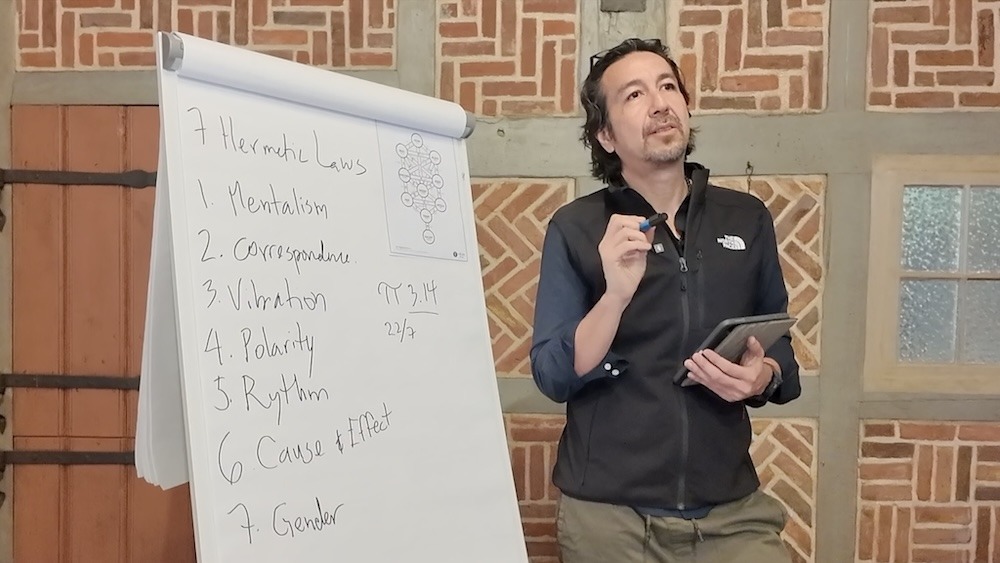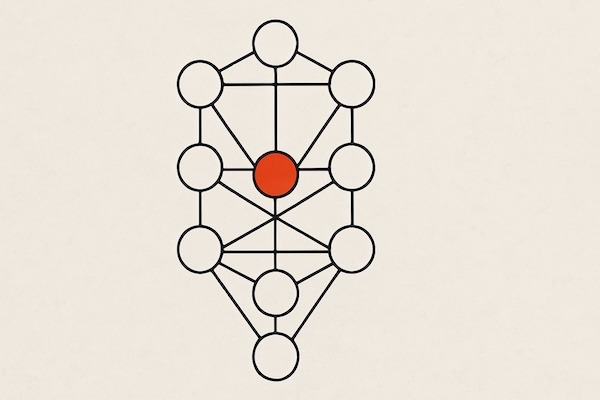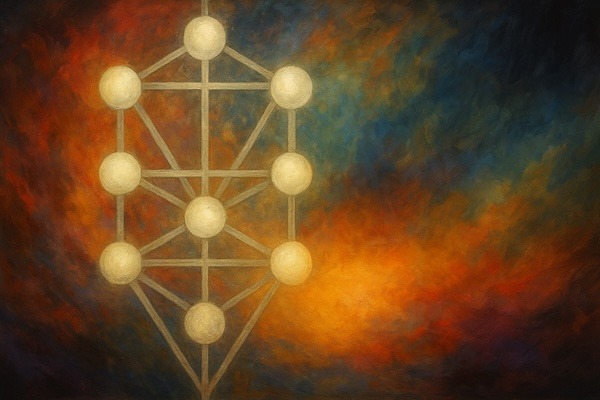“While mystical experiences can provide profound insights and a sense of transcendence, they can also lead to psychological risks such as dissociation if not balanced with grounded, everyday reality. It is crucial to integrate these experiences into one’s daily life to maintain mental health and personal well-being.”
Stanislav Grof
The Cosmic Game: Explorations of the Frontiers of Human Consciousness.
Mysticism offers a window into profound spiritual experiences and insights, using a rich tapestry of symbols, metaphors, and paradoxes to convey ideas that often transcend ordinary understanding. While these elements can open doors to deeper understanding and transformation, they also carry risks, particularly the risk of dissociation. This article explores the implications and risks of dissociation in mystical thought and language and underscores the importance of maintaining a connection with individual reality, feelings, and experiences.
Understanding Dissociation in Mysticism
Dissociation involves a disconnection between thoughts, memories, surroundings, actions, and identity. In the context of mysticism, dissociation can occur when individuals become overly immersed in abstract concepts and experiences, leading to a disconnection from their immediate reality and sense of self.
Implications of Mystical Dissociation
- Identity Fragmentation
- Description: Mystical teachings often encourage transcending or dissolving the ego, which can result in individuals feeling detached from their sense of self.
- Example: A person might strive to “destroy the ego” to achieve enlightenment, leading to confusion and loss of personal identity.
- Emotional Disconnection
- Description: The abstract and paradoxical nature of mystical language can sometimes make individuals feel disconnected from their emotions and daily experiences.
- Example: Believing that “all is an illusion” might cause someone to dismiss their feelings as unimportant or unreal.
- Existential Anxiety
- Description: The concept that the self or reality is an illusion can lead to existential anxiety and a sense of meaninglessness.
- Example: Phrases like “the self does not exist” can provoke deep existential distress as individuals struggle to find meaning in their experiences.
Risks of Mystical Dissociation
- Loss of Grounding
- Risk: Excessive immersion in mystical experiences can lead to a loss of grounding in everyday life, causing difficulties in managing personal responsibilities and relationships.
- Example: Someone might become so focused on achieving spiritual enlightenment that they neglect their job, family, and social connections.
- Psychological Disorientation
- Risk: Ambiguous and paradoxical language can lead to psychological disorientation, making it hard to distinguish between reality and mystical experiences.
- Example: Interpreting a mystical vision as a literal reality can cause confusion and fear.
- Dependency on External Guidance
- Risk: Individuals might become overly dependent on spiritual teachers or gurus, losing their ability to make independent decisions and judgments.
- Example: A person might rely solely on a guru’s interpretation of mystical experiences, undermining their own critical thinking and autonomy.
The Importance of Staying Grounded
- Maintaining a Connection with Reality
- Practice: Integrate mystical insights into daily life by applying them to practical situations and personal relationships.
- Example: Use the insight gained from a mystical experience to improve communication and empathy in relationships.
- Honoring Personal Feelings and Experiences
- Practice: Acknowledge and validate your emotions and personal experiences, even when engaging with mystical concepts.
- Example: Recognize that feelings of joy, sadness, and frustration are real and important, and use mystical insights to better understand and manage these emotions.
- Balancing Mystical and Practical Aspects of Life
- Practice: Strive for a balance between spiritual pursuits and practical responsibilities to maintain overall well-being.
- Example: Dedicate time for meditation and spiritual practice, but also ensure that daily tasks and responsibilities are met.
- Promoting Critical Thinking and Autonomy
- Practice: Encourage questioning and reflection on mystical teachings to develop a personal understanding and avoid blind adherence.
- Example: Reflect on how mystical concepts apply to your life and make decisions based on a combination of spiritual insights and practical considerations.
Strategies to Avoid Dissociation
- Clarity and Transparency
- Approach: Use clear and accessible language to discuss mystical concepts, avoiding excessive ambiguity.
- Example: Explain mystical teachings in simple terms and relate them to everyday experiences.
- Professional Support
- Approach: Seek support from mental health professionals who can help integrate mystical experiences in a healthy way.
- Example: Therapists familiar with spiritual practices can provide guidance on how to balance mystical insights with everyday life.
- Grounding Techniques
- Approach: Use grounding techniques such as mindfulness, physical exercise, and nature walks to stay connected with the present moment.
- Example: Practice mindfulness meditation to remain aware of your thoughts and feelings without becoming overwhelmed by them.
Conclusion
Mysticism offers profound opportunities for spiritual growth, but it also carries the risk of dissociation if not approached with care. By maintaining a strong connection to individual reality, feelings, and experiences, and by promoting clarity, balance, and critical thinking, individuals can navigate their mystical journeys safely and effectively. Understanding the potential for dissociation and addressing it proactively is crucial for fostering a healthy and integrated spiritual practice.







